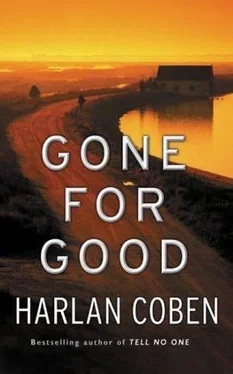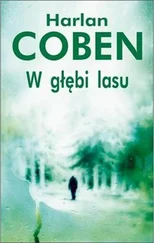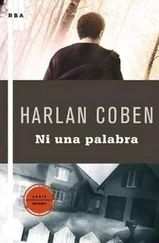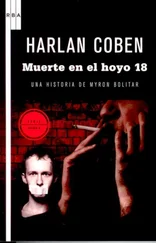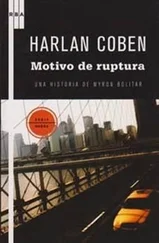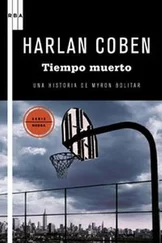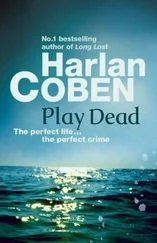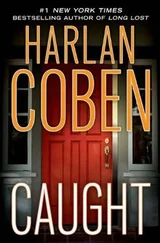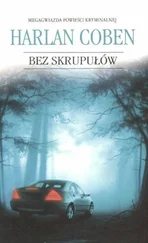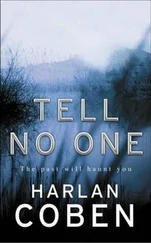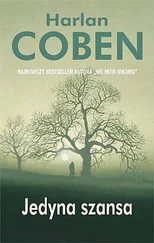"You waiting for her permission?"
He shot Bertha a red-eyed glare. "I'm still doing the external."
"How about a cause of death, Clyde?"
"Won't know for sure until I complete the autopsy."
Bertha moved closer to him. She put her hand on his shoulder, faking comfort and pretending to bond. "How about a preliminary guess, Clyde?"
"She was beaten pretty badly. See here?"
He pointed to where you might normally find a rib cage. There was little definition. The bones had caved in, crushed down like a boot on Styrofoam.
"Lots of bruising," Bertha said.
"Discoloration, yeah, but see here?" He put his finger on something poking up the skin near the stomach.
"Broken ribs?"
"Smashed ribs," he corrected her.
"How?"
Clyde shrugged. "Probably used a heavy ball peen hammer, something like that. My guess and it's only a guess is that one of the ribs splintered off and pierced a major organ. It might have punctured a lung or sliced through her belly. Or maybe she got lucky and it went straight through her heart."
Bertha shook her head. "She don't seem the lucky type tome."
Clyde turned away. He lowered his head and started crying again. His body heaved from the stifled sobs.
"These marks on her breasts," Bertha said.
Without looking he said, "Cigarette burns."
What she'd figured. Mangled fingers, cigarette burns. You did not have to be Sherlock Holmes to deduce that she was tortured.
"Do it all, Clyde. Blood samples, tox screen, everything."
He sniffled and finally turned back around. "Yeah, Bertha, sure, okay."
The door behind them opened. They both turned. It was Volker. "Got a hit," he said.
"Already?"
George nodded. "Top of the NCIC list."
"What do you mean, top of the list?"
Volker gestured toward the body on the table. "Our Jane Doe," he said. "She was wanted by none other than the FBI."
Katy dropped me off on Hickory Place, maybe three blocks from my parents' house. We did not want anybody to see us together. That was probably paranoia on our part, but I figured, what the hell.
"So what now?" Katy asked.
I had been wondering that myself. "I'm not sure. But if Ken didn't kill Julie "
"Then someone else did."
"Man," I said, "we're good at this."
She smiled. "So I guess we look for suspects?"
It sounded ridiculous who were we, the Mod Squad? but I nodded.
"I'll start checking," she said.
"Checking what?"
She gave me a teenager shrug, using her whole body. "I don't know. Julie's past, I guess. Figure out who'd have wanted to kill her."
"The police did that."
"They only looked at your brother, Will."
She had a point. "Okay," I said, again feeling ridiculous.
"Let's hook up later tonight."
I nodded and slid out. Nancy Drew sped off without a good-bye. I stood there and soaked in the solitude. I was not all that eager to move.
The streets of suburbia were empty, but the well-paved driveways were full. The paneled station wagons of my youth had been replaced by a vast variety of quasi-off-road vehicles minivans, family trucks (whatever that meant), SUVs. Most of the houses were in the classic split level mode of the circa-1960s housing boom. Many were bloated with additions. Others had undergone extensive exterior renovations circa 1974 involving too-white, too-smooth stone; the look had aged about as well as the powder-blue tux I'd worn to the prom.
When I arrived at our house, there were no cars out front and no mourners inside. No surprise there. I called out to my father. No answer. I found him alone in the basement with a cutting razor in his hand. He was in the middle of the room, surrounded by old wardrobe boxes. The sealing tape had been sliced open. Dad stood perfectly still among the boxes. He did not turn around when he heard my footsteps.
"So much already packed away," he said softly.
The boxes had belonged to my mother. My father reached into one and plucked out a thin silver headband. He turned to me and held it up. "You remember this?"
We both smiled. Everyone, I guess, goes through fashion stages, but not like my mother. She set them, defined them, became them. There was her Headband Era, for example. She'd grown her hair out and worn a potpourri of the multihued bands like an Indian princess. For several months I'd say the Headband Era lasted maybe six you would never see her without one. When the headbands were retired, the Suede-Fringe Period began in earnest. That was followed by the Purple Renaissance not my favorite, I assure you, like living with a giant eggplant or Jimi Hendrix groupie and then the Riding-Crop Age this from a woman whose closest connection to a horse was seeing Elizabeth Taylor in National Velvet.
The fashion stages, like so many other things, ended with Julie Miller's murder. My mom Sunny packed the clothes away and stored them in the dingiest corner of the basement.
Dad flipped the headband back into the box. "We were going to move, you know."
I hadn't.
"Three years ago. We were going to get a condo in West Orange and maybe a winter place in Scottsdale, near Cousin Esther and Harold. But when we found out your mother was sick, we put it all on hold." He looked at me. "You thirsty?"
"Not really."
"How about a Diet Coke? I know I could use one."
Dad hurried past me and toward the stairs. I looked at the old boxes, my mother's handwriting on the sides in thick marker. On the shelf in the back I could still see two of Ken's old tennis rackets. One was the first he'd ever used, when he was only three. Mom had saved it for him. I turned away and followed him. When we reached the kitchen, he opened the refrigerator door.
"You want to tell me what happened yesterday?" he began.
"I don't know what you mean."
"You and your sister." Dad pulled out a two-liter bottle of Diet Coke. "What was that all about?"
"Nothing," I said.
He nodded as he opened a cabinet. He took out two glasses, opened the freezer, filled them with ice. "Your mother used to eavesdrop on you and Melissa," he said.
"I know."
He smiled. "She wasn't very discreet. I'd tell her to cut it out, but she'd just tell me to hush, it was a mother's job."
"You said, me and Melissa."
"Yes."
"Why not Ken?"
"Maybe she didn't want to know." He poured the sodas. "Very curious about your brother lately."
"It's a natural enough question."
"Sure, natural. And after the funeral, you were asking me if I think he's still alive. And then the next day, you and Melissa have an argument about him. So I'll ask you one more time: What's going on?"
The photograph was still in my pocket. Don't ask me why. I'd made color copies with my scanner that morning. But I couldn't let go of it.
When the doorbell rang, we both jumped, startled. We looked at each other. Dad shrugged. I told him I'd get it. I took a quick sip of the Diet Coke and put it back on the counter. I trotted to the front door. When I opened it, when I saw who it was, I nearly toppled back.
Mrs. Miller. Julie's mom.
She held out a platter wrapped with aluminum foil. Her eyes were lowered as though she were making an offering on an altar. For a moment, I froze, unsure what to say. She glanced up. Our eyes met just as they had when I stood on her curb two days earlier. The pain I saw in them felt alive, electric. I wondered if she felt the same coming from mine.
"I just thought…" she began. "I mean, I just…"
"Please," I said. "Come in."
She tried to smile. "Thank you."
My father moved from the kitchen and said, "Who's there?"
I backed up. Mrs. Miller stepped into view, still holding up the platter as if for protection. My father's eyes widened, and I saw something behind them burst.
Читать дальше
